Just as the holidays are a time to eat, drink, and be merry, the post-holiday period is a time in which most people tend to loosen their belts, look in the mirror, and be sad.
In an effort to lose the extra holiday weight, we make a New Years resolution to start exercising regularly and go on a diet. And just like every year, we stick with it for a few weeks until something comes up to disrupt our new routine and make us give up on our goals. Sound familiar?
Having studied weight loss and seen the statistics, I’ve noticed several trends in the dieting world that do not work, yet people continue to try them. I’ve also seen firsthand which life changes lead to sustained weight loss and improved overall health. If you’re considering making weight loss goals at the start of the new year, read on for my 10 truths about weight loss.
10 Truths About Weight Loss
1. Crash diets and fad diets do not work. Period. You may lose weight quickly when you put magical pregnancy hormones under your tongue and limit your caloric intake to 500 calories per day, but how long do you plan on doing this? 40 days? Okay, you’ve lost weight, but once the diet ends, you’re going to gain the weight back (and maybe more). For more effective, long-term weight loss, you have to make permanent changes. For example, if you typically drink 3 12-oz sodas per day at 140 calories each, then decide to start drinking just one per day, you will cut your daily caloric intake by 280 calories (1,960 calories per week). I’ve seen people lose a significant amount of weight by making this one change alone! Try to find your biggest diet weakness and improve it permanently for better health.
2. Big salads are your friends. Not only are salads promoters of weight loss, they are a great way to get the nutrients you need for disease prevention and better overall health. And when I say salads, I do not mean pasta salads, potato salads, chicken salads, chef salads, wedge salads, or tuna salads. I mean a large pile of dark greens, beans, a variety of raw veggies, seeds, and an oil-free dressing (vinegar, citrus juice, etc.). If you fill up on a large volume of low-calorie, high-nutrient greens and vegetables, your body will get what it needs without any added junk. Try to have at least one large salad each day. Vegetable soups (with no added oil) are also weight loss promoters.
3. Processed foods are the enemy. These include most packaged convenience foods, which typically contain white flour, refined sugar, corn syrup, hydrogenated oil, or a laundry list of hard-to-pronounce ingredients that sound like they belong in a chemistry lab. In fact, I would hardly consider these foods. If you make one diet change, cut out processed foods. It is this reason alone that people have had some success on the paleo diet — not because they are eating like cavemen (because they’re not). Processed foods promote disease and inflammation, are devoid of important nutrients, and leave you craving more. It’s best to eliminate them as much as possible, if not entirely.
4. Counting calories is a waste of time and is potentially dangerous. Let me start by saying that you probably will lose weight if you’re counting calories and are limiting your intake to about 500 fewer calories per day than you need. BUT it’s very time consuming and is not something you’re going to do for the rest of your life. And what’s more important, calorie counting is the first step on the road to developing an eating disorder. To a small degree, I have experienced this personally.
At the end of my sophomore year at Davidson, I was in an unhealthy relationship and realized I had gained about 15 pounds. I decided my goal was to lose that extra weight over the summer break to surprise my boyfriend when we returned to school at the end of August. I started running and working out while reducing my calorie intake drastically. I knew exactly how many calories were in everything I ate and began thinking of food in terms of how long I would need to run to burn it off (the mentality of someone with anorexia nervosa). For lunch each day I ate one apple and one serving size of Goldfish crackers (I counted them). Fortunately the relationship ended one week before the semester started, and the shock of the breakup brought me back to reality. Did I lose weight? You bet. Was I healthier for it? Definitely not. In fact, just three months later I began showing signs of lupus.
So please, do not count calories to lose weight. There are much healthier ways. Read on!
5. You can’t out-exercise a bad diet. Regular exercise is important for your health, but if the only change you make in an attempt to lose weight is to increase your exercise, you will not be very successful. First of all, an active body has higher energy demands. Therefore, working out will increase your appetite to ensure that you get the calories you need. If you aren’t watching what you eat, it’s likely that you will just eat more or will be tempted to eat higher calorie foods later in the day. Secondly, we do not eat just for energy — we also need vitamins, minerals, phytonutrients, protein, etc. If you eat fast food and sweets all day, but exercise obsessively to stay thin, you’re definitely not healthy. There are marathon runners who have suffered heart attacks even though they were “in shape.” Skinny does not equal healthy.
6. Skipping breakfast does not “save calories.” Although it seems like you’d be reducing your daily caloric intake by 1/3, statistics show that people who skip breakfast actually end up consuming more calories per day than the people who eat breakfast. When you don’t start your day with enough calories, your body compensates by craving higher-calorie foods later in the evening. Your best option is to start your day with a high-nutrient breakfast that is low in saturated fat and sugar and high in fiber and plant protein (see my breakfast recipes).
7. Smoothies are not always a weight loss food. I’ve had many people proudly tell me that they drink a fruit smoothie every day, then wait for me to pat them on the back. If you’re making a smoothie at home that contains frozen fruit, little or no added fruit juice or sweetener, and a handful of greens (or veggies), then great! That smoothie sounds like a nutritious breakfast. But if you’re buying your smoothie from a store like Smoothie King or Tropical Smoothie, you could be sabotaging your weight loss goal. For example, if you go to Smoothie King and order a small Carribean Way, you’re about to consume 395 calories of fruit sugar (89 grams, which is equal to 21 teaspoons of sugar!). This much sugar will be digested quickly, leaving you hungry again in an hour or two. If you’re going to drink a smoothie, make it yourself and leave out sweeteners, fruit juice, and yogurt.
8. Increasing your protein is not a good weight loss strategy. There is a lot of confusion about protein and its role in our bodies. I could write a whole post about it, but for now I’ll keep it simple. Yes, protein is necessary for rebuilding cells (i.e. muscle cells), but eating more does NOT make you build more muscle unless you are lifting weights and actively trying to bulk up. If you’re not lifting, any extra protein you eat turns into fat. That’s right. Protein is 4 calories per gram, so eating Greek yogurt or lean meat can cause you to gain weight. It does increase satiety (the feeling of fullness when you eat), so of course you do need some protein with each meal. Just don’t eat more protein than you normally would and think it’s going to help you lose weight.
9. Portion control is only necessary if you’re eating the wrong foods. Think about it. You don’t have to measure out your salad greens to make sure you don’t overdo it, so if you think portion control is your problem, consider changing what you’re eating as well. You shouldn’t have to spend your life measuring out everything you eat. Let yourself eat a large salad or vegetable soup (see truth #2 above) until you’re full. This way you’ll get the nutrients you need and won’t feel hungry and tempted to snack on junk food later.
10. The best way to reach your desired weight is to eat real food (mostly plants). This is also the best diet for preventing diseases and feeling your best, so why not try it? When you limit the animal protein, added oils, sugars, and processed foods to 5-10 percent of your daily calories, you ensure that your body receives all of the nutrients it needs from a variety of low-calorie, high-nutrient plant sources. You can eat until you feel full without counting calories, measuring out portions, or keeping a food journal. If you have a lot of weight to lose, you will be surprised by how quickly you see results! Of course you are not just limited to soups and salads — see my recipes for ideas.
So there you have it — my 10 truths about weight loss. I hope you keep these in mind when making your weight loss goals for 2015.
Happy New Year, everyone!

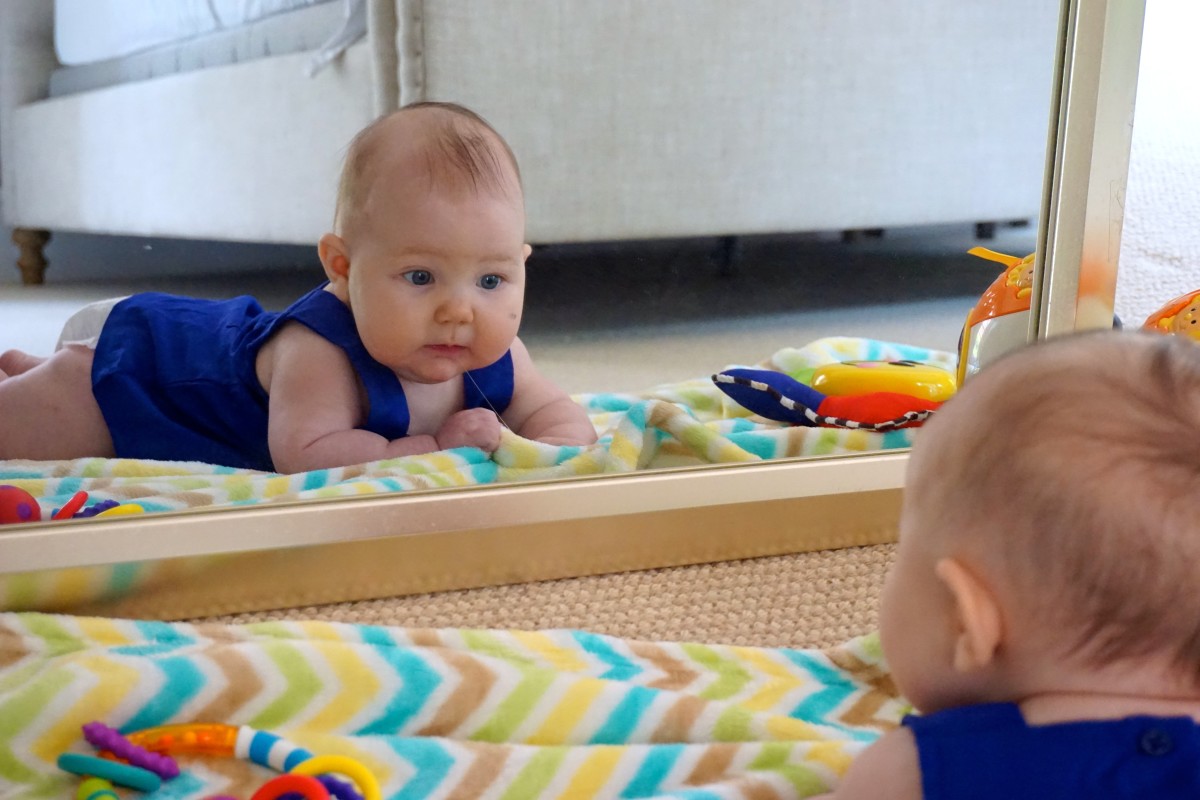
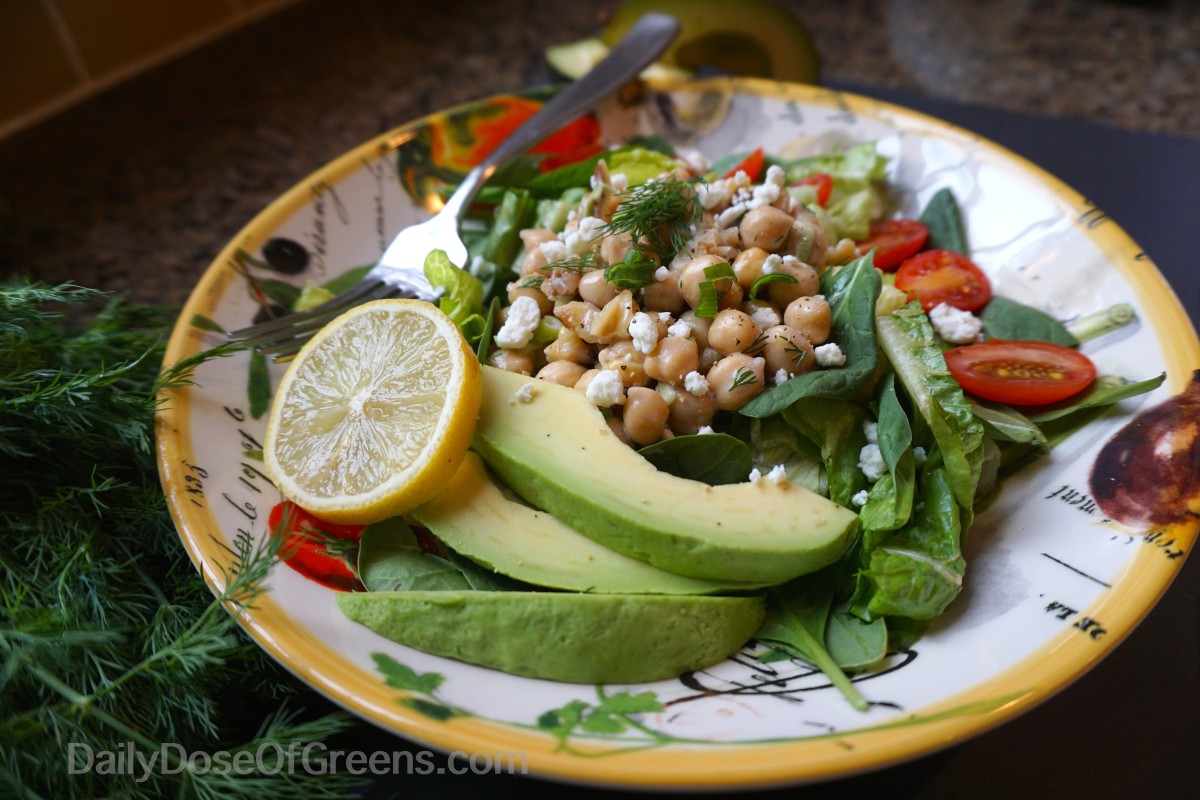
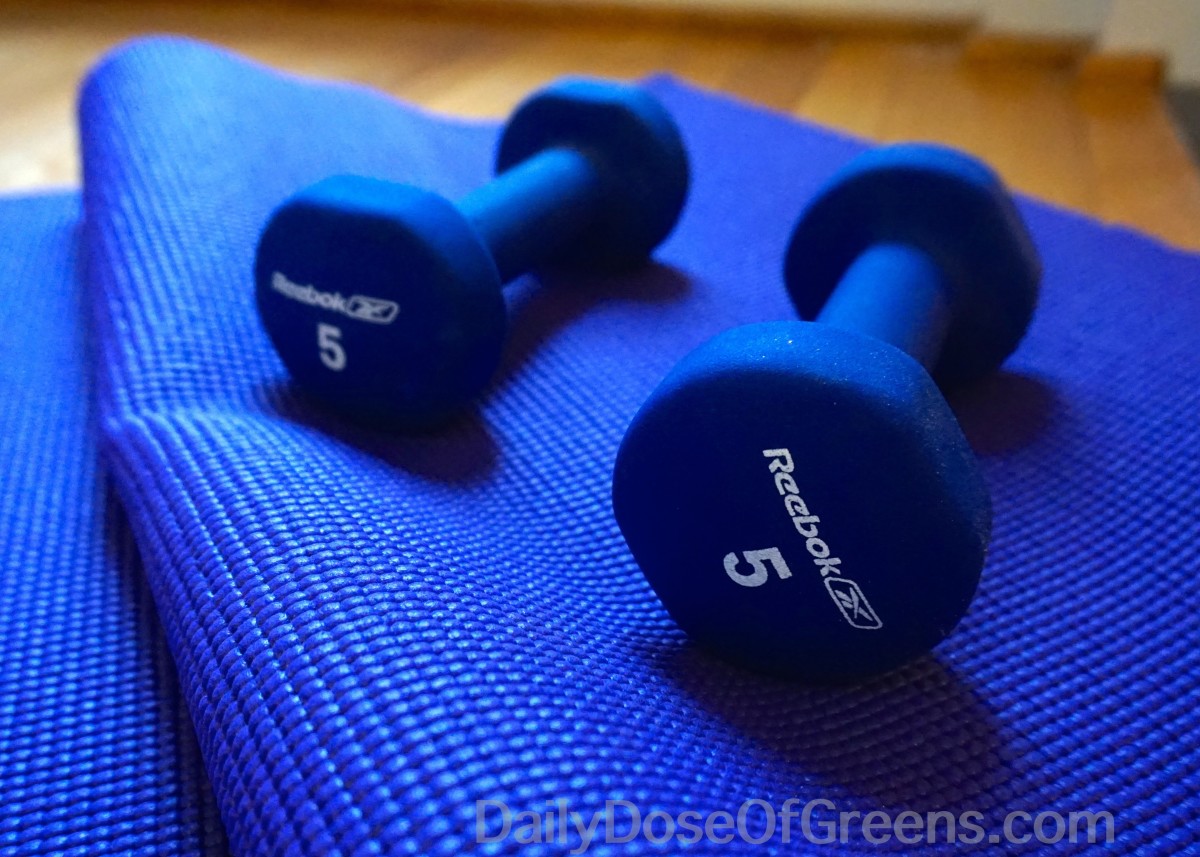
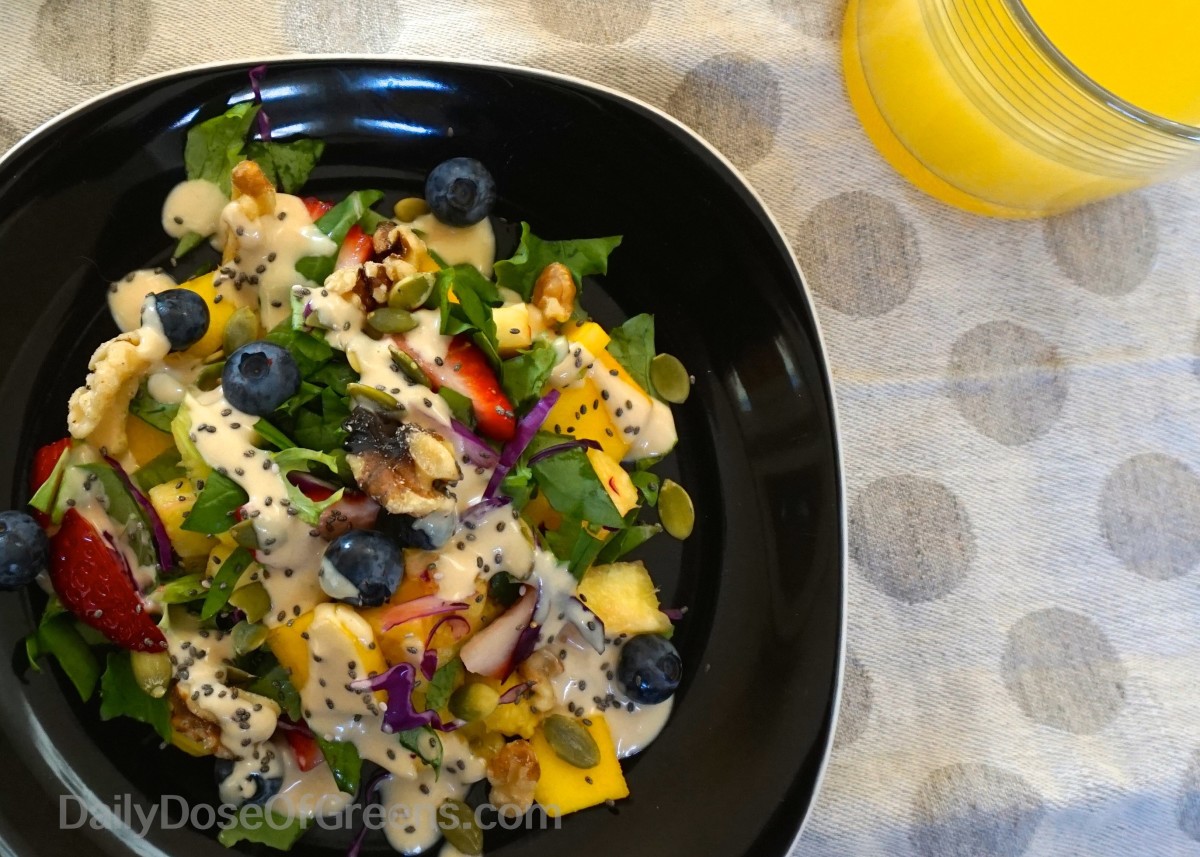
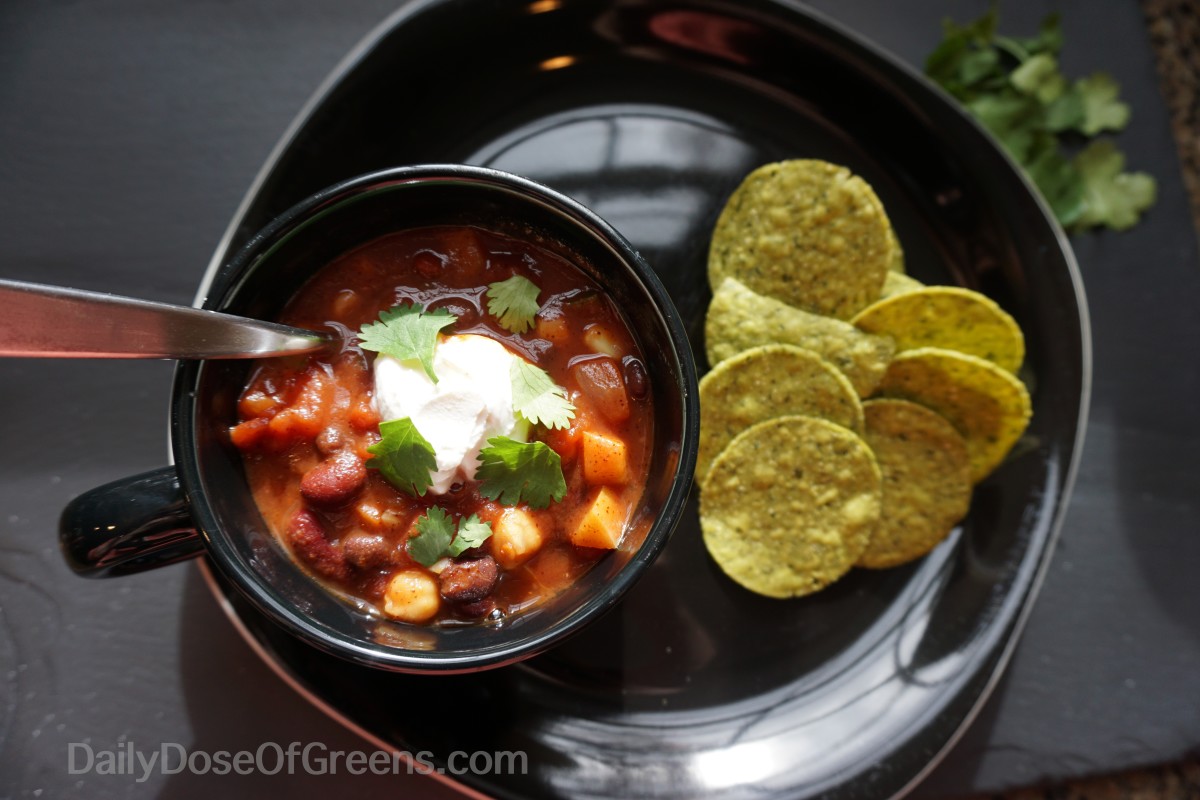
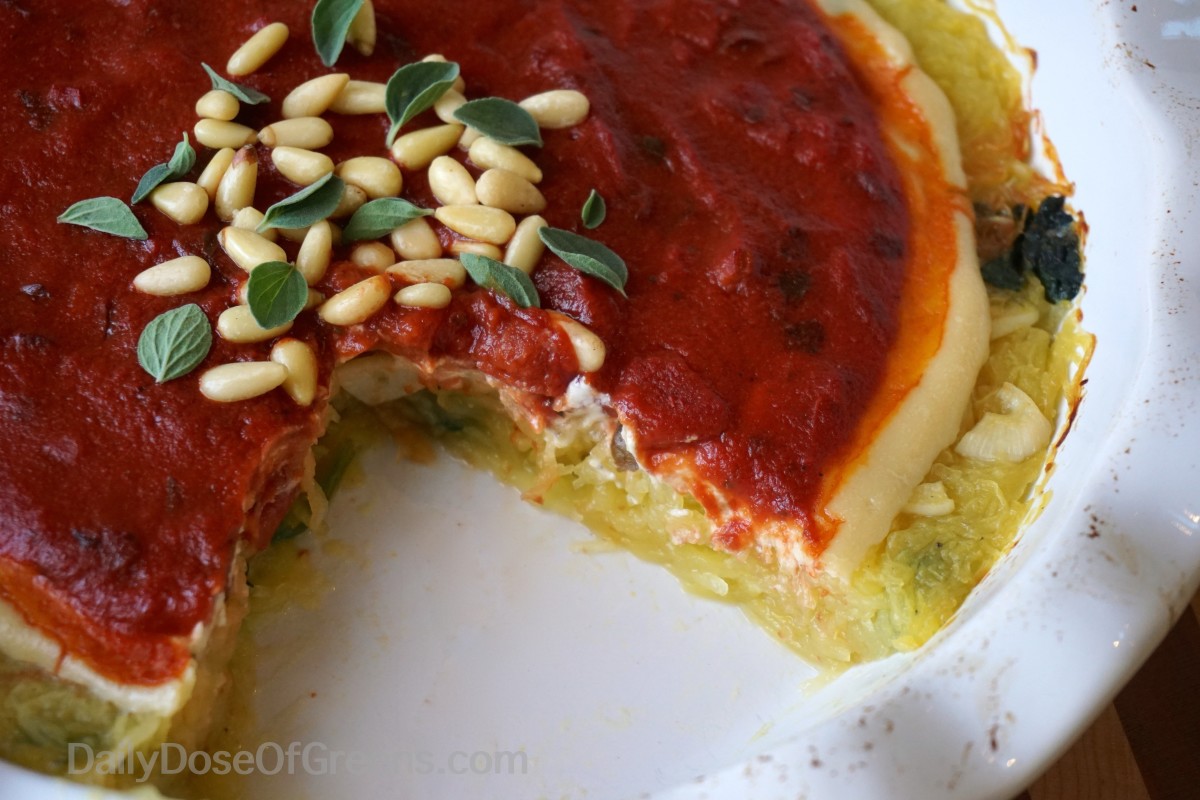

[…] lentil stew, and roasted citrus salad because they are delicious and fun to make. I also like my 10 Truths About Weight Loss article because it addresses several weight loss […]